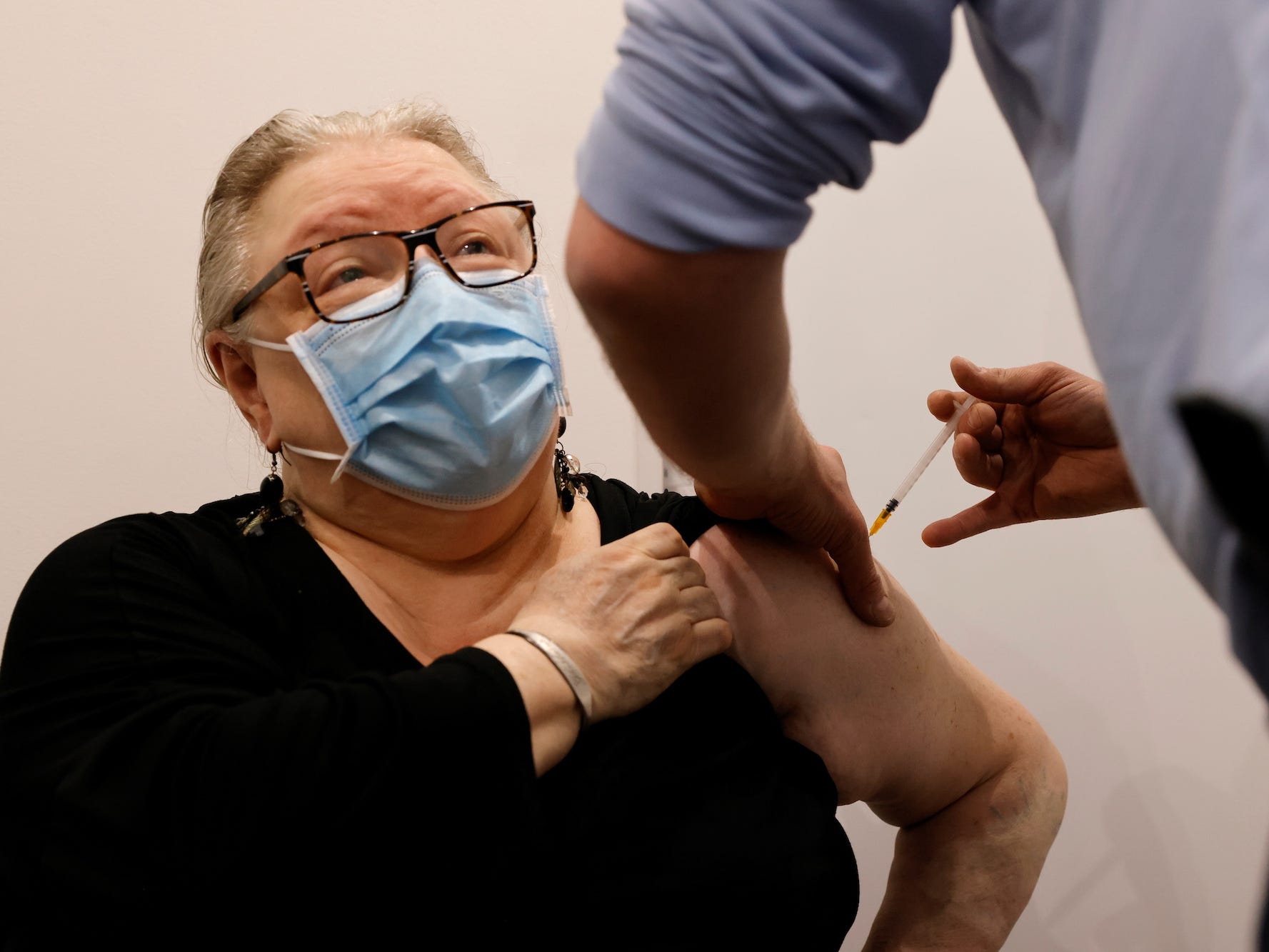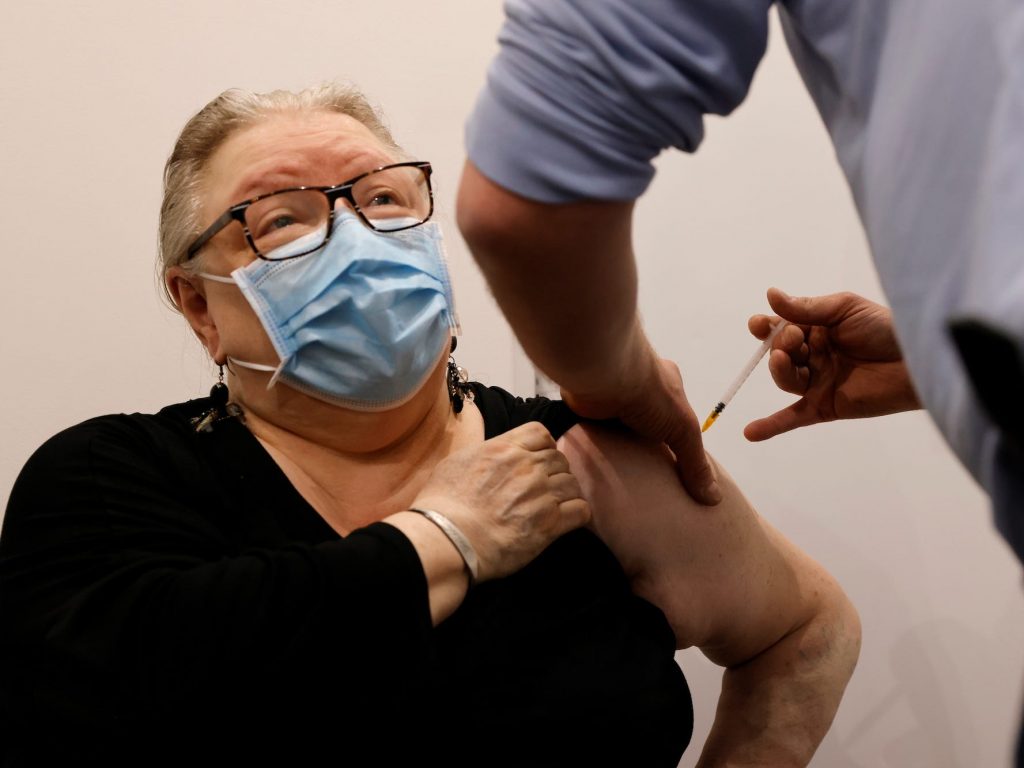
REUTERS/Pascal Rossignol
- Vaccines cut the risk of developing severe COVID-19 by at least 90%, a study of 23 million people finds.
- COVID-19 vaccine protection lasted for at least five months in people aged 50 to 75, it found.
- It adds to a growing body of real-world evidence that vaccines hold up against severe COVID-19.
Vaccines cut the risk of severe COVID-19 by at least 90% in people who are 50 or older, a real-world study of nearly 23 million people has found.
The study, conducted by the French government-backed scientific organization Epi-Phare, found that five months after vaccination, people aged over 75 were 94% less likely to be hospitalized than unvaccinated people in the same age group.
The reduction in risk for those aged 50 to 74 was even higher, at 97%, the study authors said in a press release published Monday.
"This means that those who are vaccinated are nine times less at risk of being hospitalized or dying from COVID-19 than those who have not been vaccinated," the epidemiologist Mahmoud Zureik, who oversaw the research, told Agence France-Presse, per The Guardian.
The study, which used data from the French National Health Data System, is one of the largest of its kind, comprising a total of 22.6 million people – 7.2 million over 75 years old and 15.4 million people aged 50 to 74.
It adds to a growing body of real-world research from the UK, US, and Israel that vaccines hold up against severe COVID-19 for at least five months.
Zureik told Agence France-Presse that avoiding the most serious infections was "the main public health objective."
"An epidemic without serious infections is no longer an epidemic," he said.
Most people, 85.3%, in the over-75 age group had received Pfizer's COVID-19 shot. A smaller number received Moderna shots and AstraZeneca's shots, at 8.7% and 6.1% respectively.
In the younger age group, 53.6% received Pfizer's vaccine, 39.2% AstraZeneca's, and 7.1% Moderna's.
The cut off for the study was July 20, which means it only includes a month of data for the highly infectious Delta variant, which became dominant in France in June.
Zureik told Agence France-Presse that this was "a very short period to evaluate the real impact of the vaccination on this variant," adding that the research was ongoing.

